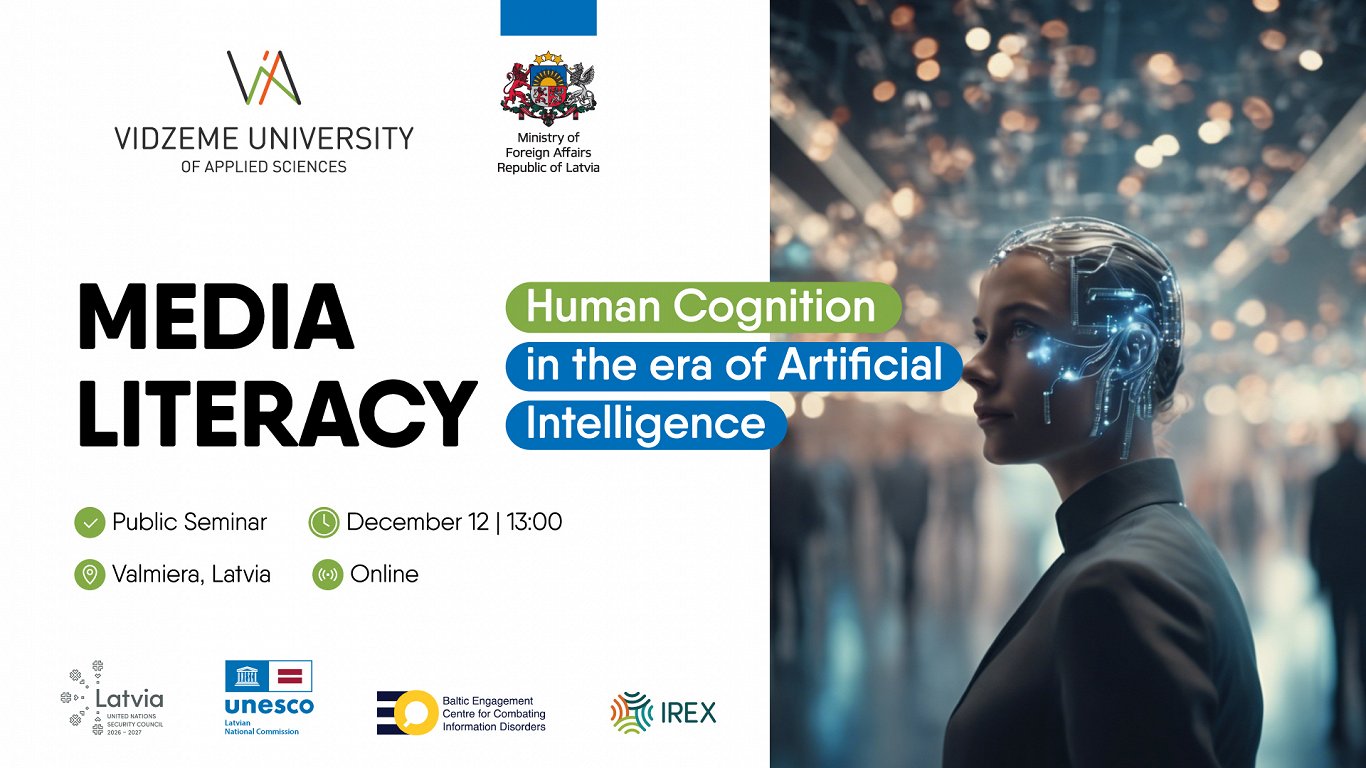"In order to improve the public's understanding of the cognitive processes related to media literacy and how artificial intelligence and modern technologies affect the creation and consumption of media content, an international negotiation laboratory will be held in Valmiera on December 12, organized by the Vidzeme University of Applied Sciences in cooperation with the UNESCO National Commission and support Ministry of Foreign Affairs of the Republic of Latvia," says advance publicity material.
It will be the first such interdisciplinary event in Latvia, and will bring together experts and practitioners in the field of neurocognitive and communication research from Latvia, Sweden, Great Britain, Estonia, Lithuania, and Morocco, promoting the exchange of quality information and stimulating professional discussion.
Rector of Vidzeme University Agnese Dāvidsone said:
"Media literacy in society cannot be improved by only appealing to the rational mind of a person. It is very important to understand what processes occur in the brain when potentially exposed to misinformation, to understand a large number of different factors, about which neuroscientists and psychologists have accumulated extensive knowledge.
"Therefore, as media literacy researchers and also media literacy educators, we understand that much closer cooperation between researchers in these branches of science is necessary so that we can more successfully implement our task - to promote the media literacy of Latvian society.
"At Vidzeme University, we have been working with media literacy issues since 2016, so we have accumulated enough experience to be able to share our knowledge and create a platform for interdisciplinary discussions, which will lead to closer cooperation between researchers and practitioners on a national and international scale."
In the conversation laboratory, it will be possible to listen to stories about how the perception of disinformation is affected by artificial intelligence, how the cognitive aspects of media literacy are affected from a psychological point of view.
There will be an opportunity to hear practical stories, as well as participate in a high-quality discussion, in which both experts and practitioners will participate. Kaspars Rūklis (Baltic Media Literacy Program "IREX") and Gunta Sloga (Baltic Media Excellence Center) will lead the discussions.
The conversation laboratory will take place in person from 13.00 to 17.00 in Valmiera and will also be streamed online here on LSM in both Latvian and English.
More information: https://va.lv/en/news-events/events/conversation-laboratory-media-literacy-and-cognitive-aspects-age-artificial





























